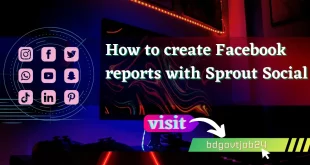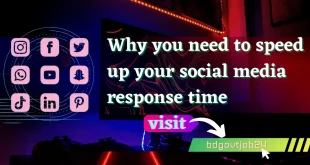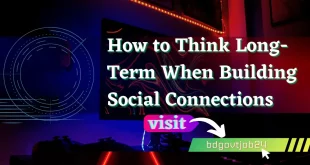Digital marketing is all about using psychological principles to influence people’s behavior in a positive way. In this article, we’ll explore some of the most common psychological tactics used in digital marketing and give you tips on how to use them for your own campaigns.
Digital marketing is all about creating positive experiences for your customers online. That means understanding how they think and what motivates them and using that information to create persuasive content and drive conversions. In this article, we’ll discuss the basics of psychology and how it can be used in digital marketing.
What is digital marketing?
Digital marketing is the process of creating, managing, and executing a marketing plan that uses electronic media to reach and engage customers. It includes activities such as developing relationships with target consumers, delivering content, measuring results, and modifying plans as needed.
Digital marketing has many different applications, including website design and development, online advertising, e-mail marketing, social media marketing, and search engine optimization (SEO).
It can be used by businesses of all sizes to create a presence online and reach new customers. Digital marketing is an important part of any marketing plan because it allows businesses to interact with their customers in a variety of ways.
There are several different methods that digital marketers can use to reach their target audience. Some popular methods include email marketing, social media marketing, website design and development, and search engine optimization. Each method has its own advantages and disadvantages; it’s important to choose the method that will work best for your business.
Defining psychology
Digital marketing is all about using psychological principles to influence people’s behavior. In this article, we’ll discuss how to use psychology in digital marketing, and give you some tips on how to get the most out of your campaigns.
When it comes to digital marketing, understanding human psychology is key. By understanding what motivates people, you can create effective ads and web content that appeals to them.
Here are a few tips on how to use psychology in digital marketing:
Cognitive dissonance theory states that humans are motivated to reduce cognitive dissonance – the discomfort that comes from holding two conflicting thoughts in our minds at the same time.
When you’re trying to sell someone on a product or idea, for example, it’s important to create a sense of harmony between your message and the user’s current beliefs or attitudes.
One way to do this is by appealing to their emotions (for example, by making a persuasive argument based on feelings). cognitive dissonance theory can also be used in ads and web content to motivate users toward particular outcomes.

The major psychological principles of online marketing
There are a few major psychological principles that can be used when it comes to online marketing. The first is social proof. This principle states that people are more likely to do something if they see others doing it.
This means that you can use social media platforms to promote your product or website by featuring positive reviews from other customers. The second principle is cognitive dissonance.
This is the feeling of anxiety or tension that results from holding two conflicting ideas in your mind at the same time. For example, if you believe that wearing sunscreen is important, but you also don’t like the way it smells, you might experience cognitive dissonance.
You might want to avoid wearing sunscreen, even though you know the benefits, in order to avoid the uncomfortable tension of reconciling these two beliefs. The last principle is self-efficacy. This is the belief that you are capable of achieving a particular goal or outcome.
If someone thinks they can successfully lose weight by following a diet plan, for example, they will have higher self-efficacy than someone who doesn’t believe they can succeed. You can use self-efficacy to boost your own confidence when promoting your product or website online.
The few steps of persuasion:
1. Start with a Problem
In order to get someone to take action, you need to first create a problem for them. This can be done by framing the issue in a way that resonates with them, or by highlighting the consequences of not taking action.
2. Address Their Needs
Once you have created a problem, it is important to address the needs of the person you are persuading.
3. Make a Case for Yourself
Once you have addressed the needs of the person you are persuading, it is important to make a case for yourself.
4. Give Them Time and Guidance
Finally, it is important to give the person you are persuading time and guidance.
How to use psychology in your digital marketing strategy
Digital marketing is all about understanding human behavior and applying that to create persuasive messages that will get your customers to take action. One way to do this is by using psychological principles in your marketing strategy.
Here are some ways to use psychology in your digital marketing:
1. Use emotion-based appeals. Showing your customers emotions can make a big difference in how they respond. For example, if you’re selling a product that helps people be more productive, show them screenshots of people who have achieved their goals using the product. This will evoke an emotional response and help motivate buyers to take action.
2. Use cognitive dissonance theory. When people hold two opposing ideas in their minds at the same time, it creates cognitive dissonance. This can be used to your advantage in digital marketing by creating content that challenges your customers’ beliefs or assumptions about your product or company.
For example, if you’re selling a fitness tracker, challenge people’s notions about what counts as exercise and how much they need to work out to see results.
Why people buy
Digital marketing is all about understanding what people want and finding a way to give it to them. It’s not just about getting people to visit your website or click on a link; it’s about getting them to buy something. And sometimes that something is something they didn’t even know they wanted.
Psychology can help you understand why people do the things they do and can give you insights into what will make them buy. For example, you might think that people buy based on price, but maybe you should be looking at promotion as a key factor in your sales strategy.
Or maybe you think that people only buy products that are new or different, but maybe you could be selling products that are already in people’s homes. The point is, that psychology can help you understand how people work and how to get them to do what you want.
Here are three ways psychology can help with digital marketing:
- Understand how humans process information
- Know what motivates people
- Discover how customers think
Types of psychology in digital marketing
There are three main types of psychology in digital marketing: behavioral psychology, cognitive psychology, and social psychology. Behavioral psychology focuses on how people think and behave when they are confronted with a situation.
Cognitive psychology examines how people think about information and how that affects their decision-making processes. Social psychology looks at the ways that people interact with each other and the effects that this has on the way that they think and behave.
One of the most important aspects of digital marketing is understanding human behavior. This is where behavioral science comes into play. Behavioral science helps marketers understand why people do what they do and how they can use that information to their advantage.
Cognitive science is another important tool for digital marketers. It helps them understand how people process information and makes predictions about how people will respond to different stimuli.



